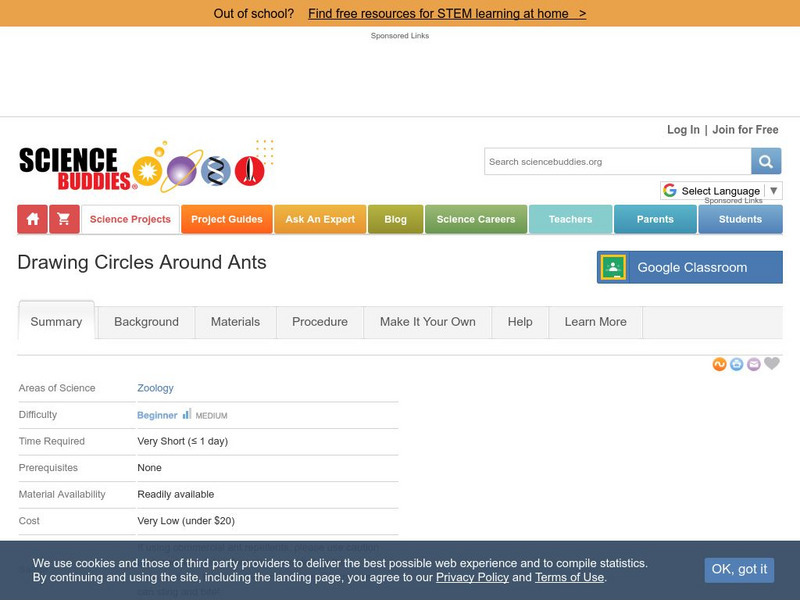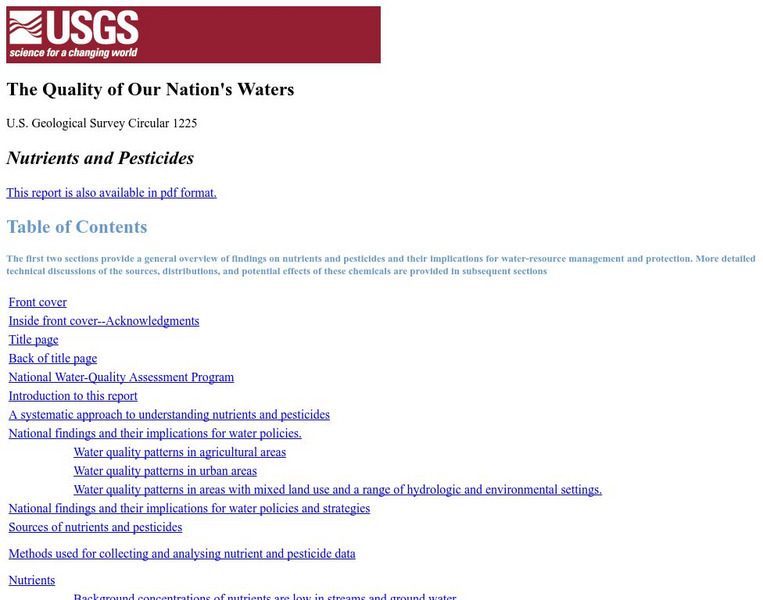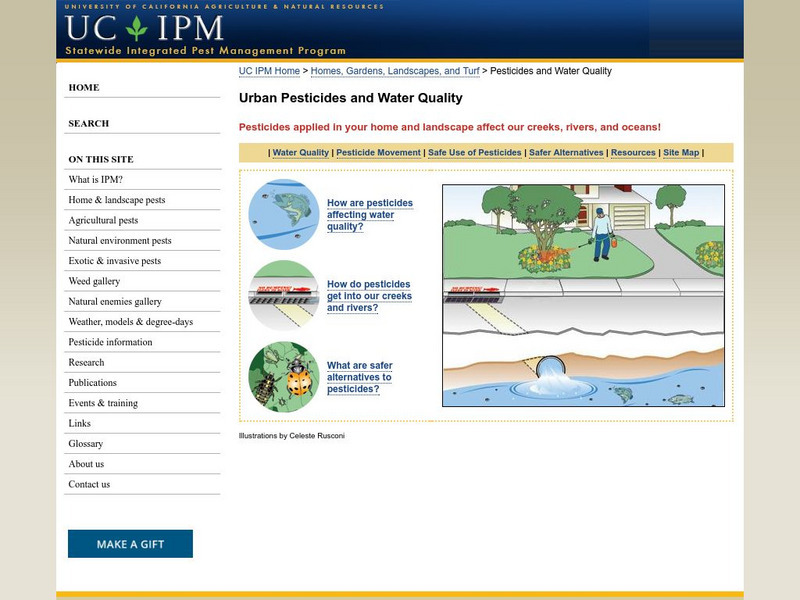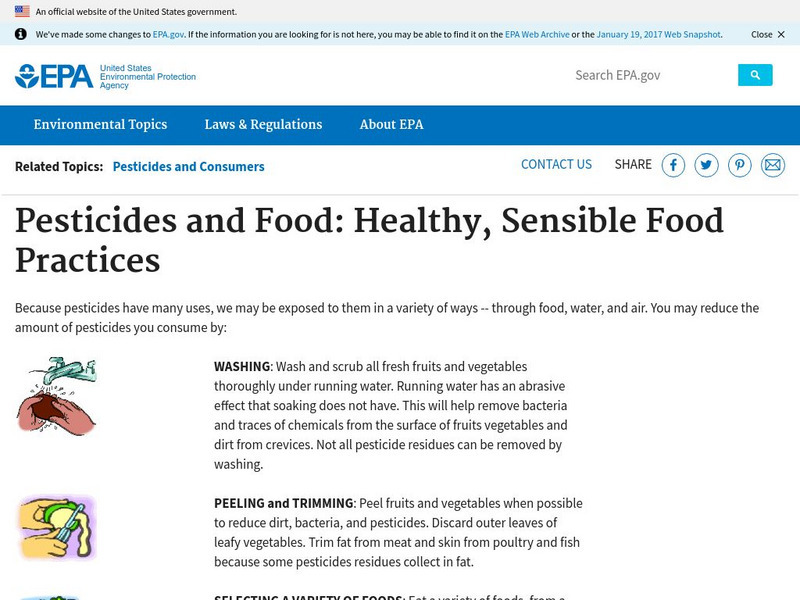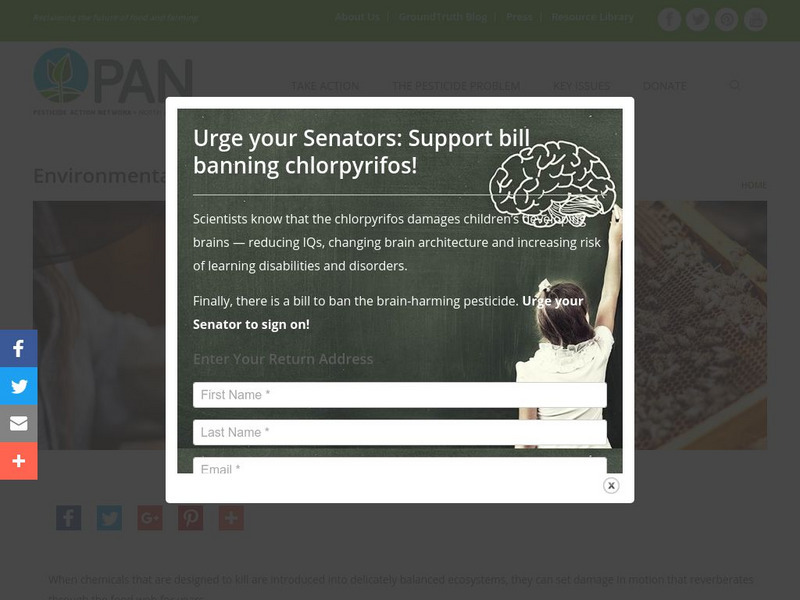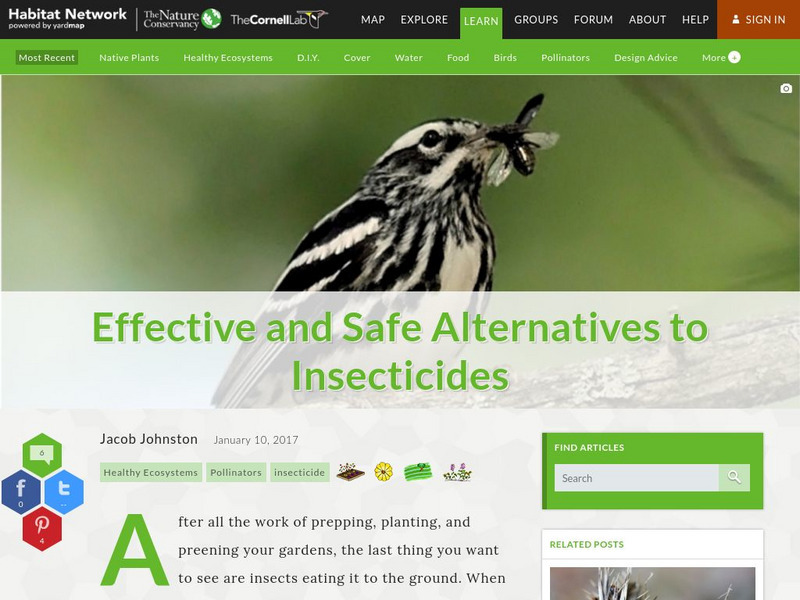Science Buddies
Science Buddies: Drawing Circles Around Ants
Do ants sometimes ruin your picnic? There are some chemical ant repellents you can spray to keep them away, but who wants to spray poison all over their food? In this experiment you can investigate some less toxic solutions that may be...
Science Buddies
Science Buddies: Testing Ant Repellents
Has your house ever suffered an ant invasion? This project is an interesting way to investigate what substances are effective as ant repellents. The goal is to find substances that keep ants away, yet are safe for humans and the...
US Geological Survey
U.s. Geological Survey: Nutrients and Pesticides
The first two sections provide a general overview of findings on nutrients and pesticides and their implications for water-resource management and protection. More detailed technical discussions of the sources, distributions, and...
University of California
University of California: Pesticides and Water Quality
Information on the effects that pesticides have on water quality, how pesticides get into creeks and rivers, and safer alternatives to pesticides.
Georgia Department of Education
Ga Virtual Learning: Ap Environmental Science: Food Production and Pesticides
Through videos, interactive activities, and readings, students explore the future of food production and sustainability of our current agricultural system.
University of Wisconsin
The Why Files: Eating Organic? Roaches Disdain Key "Junk Food" Sweetener
An extermination trick that married insecticide with sugar worked for a while - but then suddenly lost its power against roaches. Now science tells us why.
US Environmental Protection Agency
Epa: Pesticides and Food: Healthy, Sensible Food Practices
Information provided on pesticide residues on food, the possibility that these pesticides could harm us, and what the government does to ensure that pesticides used on food are safe.
Encyclopedia of Earth
Encyclopedia of Earth: Ddt
Information about the insecticide DDT, a toxic chemical that was used widely in World War II and later, and is still used in some countries today. It has had far-reaching effects on the environment, as it is carried long distances by air...
TED Talks
Ted: Ted Ed: Do We Really Need Pesticides?
Annually, we shower over 5 billion pounds of pesticides across the Earth to control insects, unwanted weeds, funguses, rodents, and bacteria that may threaten our food supply. But is it worth it, knowing what we do about the associated...
Other
Pesticide Action Network: Environmental Impacts
An environmental action agency provides information on events that demonstrate how pesticides may wreak havoc on the environment and threaten the food web for years. Examples of effects on honeybees, bats, and frogs are provided.
US Environmental Protection Agency
Epa: Assessing Health Risks From Pesticides
This site provides information about the active ingredients registered as pesticides. Site discusses toxicology, exposure, dose-response and risk characterization.
Cornell Lab of Ornithology
Habitat Network: Effective and Safe Alternatives to Insecticides
The Habitat Network discusses the effective and safe alternatives to common pest treatments.
Cornell Lab of Ornithology
Habitat Network: Freedom From Danger
Learn how minimizing pesticide-use can maximize diversity in a backyard habitat.
US Environmental Protection Agency
Epa: Learn the Issues: Chemicals & Toxics
This site provides real-world issues as well as the scientific research and technology used to support the EPA's mission to protect human health and safeguard the natural environment.
Annenberg Foundation
Annenberg Learner: Garbage: Hazardous Waste
A concise site that defines hazardous waste and looks at who is responsible for contaminating our planet.


